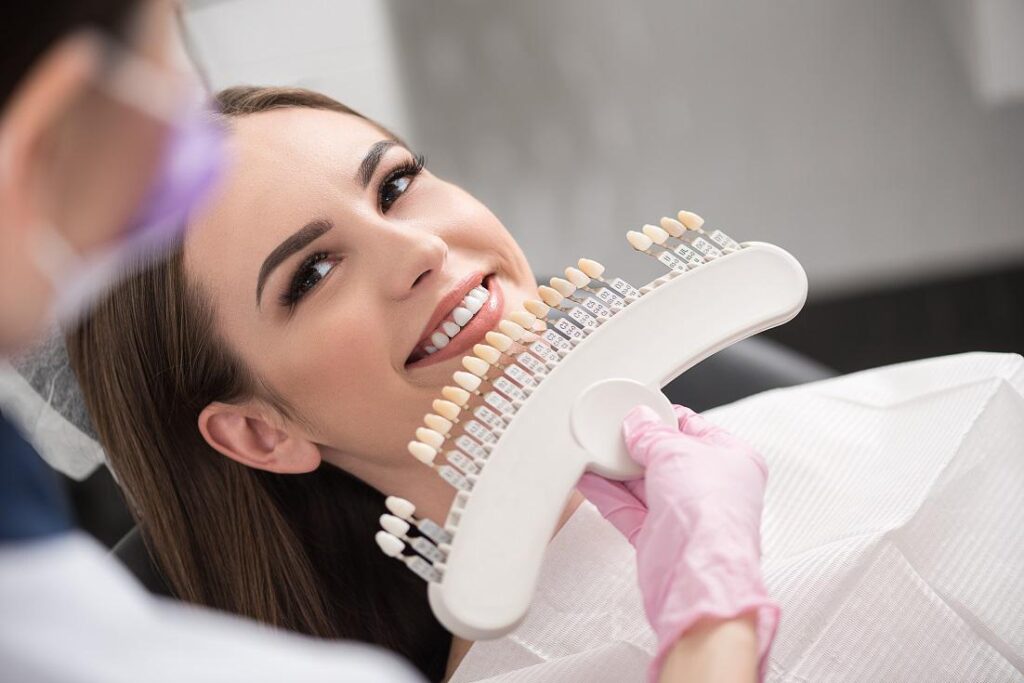Understanding the significance of crowns in dental care is pivotal for those seeking comprehensive oral health solutions. Let’s delve into the intricacies of crowns, exploring their purpose and significance.
What is a Dental Crown?
A dental crown, often referred to as a cap, is a prosthetic restoration that encases a damaged or weakened tooth. Crafted meticulously to mimic the natural shape and color of the tooth, crowns are custom-designed to seamlessly integrate into the patient’s smile. These prosthetics are typically composed of various materials such as porcelain, ceramic, metal alloys, or a combination thereof, ensuring durability and aesthetic appeal.
Structural Reinforcement
One of the primary purposes of a dental crown is to provide structural reinforcement to a compromised tooth. Teeth that are significantly decayed, fractured, or weakened due to extensive dental procedures like root canal therapy often require additional support to prevent further damage or fracture. By encapsulating the entire visible portion of the tooth, crowns restore strength and integrity, allowing patients to bite and chew with confidence.
Protection Against Decay and Fracture
Crowns act as protective shields, safeguarding vulnerable teeth against decay and fracture. When a tooth is weakened or has large cavities, it becomes susceptible to bacterial invasion and subsequent decay. Additionally, compromised teeth are prone to fractures, especially under the pressures of biting and chewing. By covering the entire surface of the tooth, crowns create a barrier that shields against harmful bacteria and distributes the forces exerted during mastication, reducing the risk of fractures.
Restoration of Functionality
Beyond structural reinforcement, crowns play a pivotal role in restoring functionality to compromised teeth. A tooth that is damaged or weakened may exhibit limited functionality, causing discomfort and hindering essential oral functions such as biting and chewing. Crowns restore the natural shape and alignment of the tooth, enabling seamless interaction with adjacent teeth and facilitating optimal chewing efficiency. This restoration of functionality enhances the overall quality of life for patients, allowing them to enjoy their favorite foods without hesitation.
Esthetic Enhancement
Crowns are meticulously crafted to blend seamlessly with the patient’s natural dentition, ensuring a harmonious and esthetically pleasing smile. Whether fabricated from porcelain, ceramic, or other materials, crowns are customized to match the color, and shape of adjacent teeth, achieving a natural-looking result. This esthetic enhancement not only restores confidence in one’s smile but also contributes to overall facial esthetics, enhancing self-esteem and social interactions.
Support for Dental Prosthetics
In addition to restoring individual teeth, crowns serve as essential components in supporting various dental prosthetics. In cases where a tooth is missing or irreparably damaged, dental implants or bridges may be recommended as replacement solutions. Crowns play a crucial role in anchoring these prosthetics securely in place. When used in conjunction with dental implants, the crowns serve as lifelike replacements for missing teeth. Similarly, in bridge restorations, crowns are attached to adjacent teeth, providing stability and support for the fake tooth or teeth suspended between them.
Long-Term Durability and Maintenance
Crowns are designed to withstand the rigors of daily oral function and can last for many years with proper care and maintenance. Maintaining good oral hygiene practices, including regular brushing, flossing, and routine dental visits, is essential for preserving the longevity of crowns. Additionally, avoiding habits such as teeth grinding or chewing on hard objects can help prevent premature wear or damage to the crowns. With diligent care, crowns are a durable and reliable restoration, ensuring sustained oral health and functionality for years to come.
Conclusion
Crowns are indispensable, offering a myriad of benefits ranging from structural reinforcement to esthetic enhancement. These versatile prosthetics play a pivotal role in preserving and protecting the integrity of damaged teeth, restoring functionality, and enhancing smiles. By understanding the purpose and significance of crowns in dental care, patients can make informed decisions regarding their oral health and embark on a journey towards a healthier, more confident smile.
Contact Us: For more information about dental crowns and other oral health services, please contact us at (860) 589-4577.

